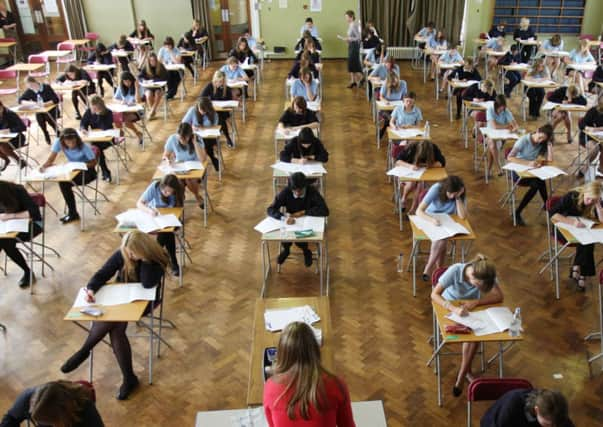‘No silver bullet’ for educating Yorkshire better


The ‘London Effect’ sees students in the capital outperform pupils in Yorkshire by up to half a grade of progress at GCSE in all subjects over their time in secondary school.
This could mean the difference between gaining eight A grades compared to eight Bs, or eight Cs compared to eight Ds.
Advertisement
Hide AdAdvertisement
Hide AdNew research has suggested that Londoners score higher GCSE results than those in the rest of the country because the capital’s schools have a higher proportion of pupils from ethnic minority backgrounds.
The new study by the Centre for Market and Public Organisation argues that the diversity of the city’s population explains the “London Effect”.
Ethnic minority pupils tend to achieve higher GCSE grades than those from a white British background, researchers suggest, and as they make up a large proportion of the student population in London’s schools, this help to boost the capital’s overall exam score.
The study by the centre based at Bristol University, analysed 2013 GCSE data for all pupils in state secondary schools in England. It looked at each student’s GCSE point score across their eight best subjects, against their attainment in exams taken at the end of primary school and examined other measures such as the percentage of students score at least five C grades at GCSE.
Advertisement
Hide AdAdvertisement
Hide AdBut Prof Mel Ainscow, an education expert who is helping to lead a new school improvement programme in Yorkshire, said the difference in results was down to a “complex series of factors”.
He said: “The most important thing is to understand the context in which schools are working and then develop an improvement programme specifically designed to that context.”
The latest national figures show that pupils in Yorkshire are already falling behind by the age of seven – particularly those in the region who have English as a second language.
DfE tables from last month revealed children with English as an additional language in Yorkshire do not get to the expected standard in writing and one-in-five do not achieve this in reading, according to assessments carried out by teachers.
Advertisement
Hide AdAdvertisement
Hide AdThe figures from the Department for Education show that while 87 per cent of seven-year-olds with English as an additional language across the country reach the expected level in reading, in Yorkshire the figure was 79 per cent.